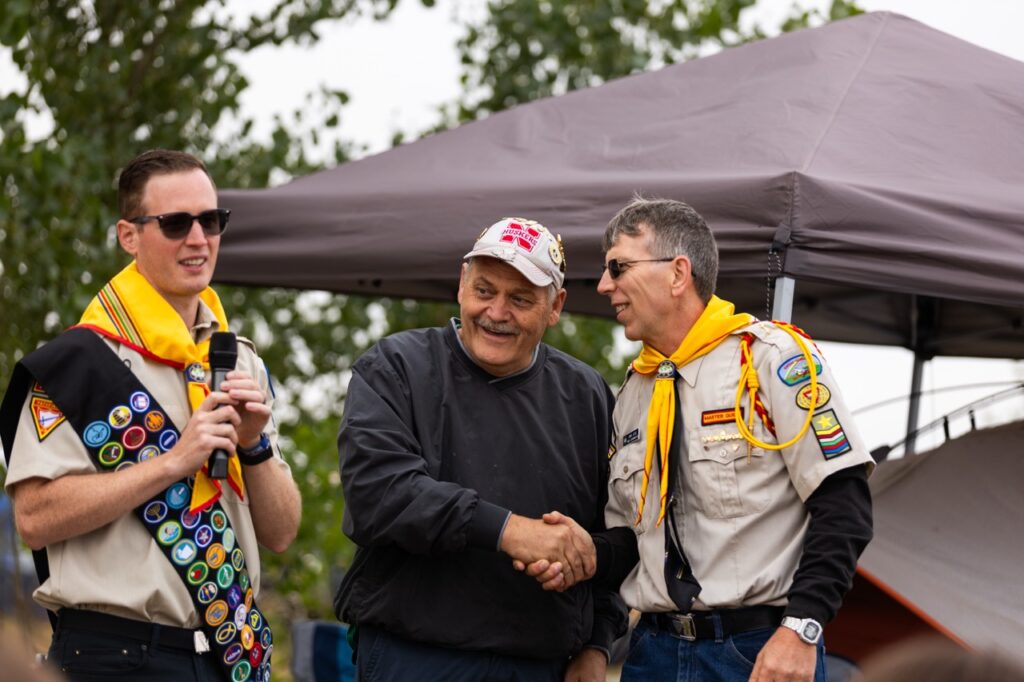For 41 years, Steve Ladig has dedicated his life to guiding young people through the Pathfinder organization, a global youth group sponsored by the Seventh-day Adventist Church. He has served 20 years as the director of the College View Trailblazers Pathfinder Club in Lincoln, Nebraska, leaving a legacy that stretches back more than three decades. But this year marks a turning point for Ladig as he steps down from his role as director, handing over the reins to the next generation of leaders while reflecting on a journey filled with memories, challenges and deep spiritual fulfillment.
Ladig’s involvement with Pathfinders began at a young age, although his path to the Seventh-day Adventist Church was not typical.
“I wasn’t raised a Seventh-day Adventist,” Ladig explained.
“I became an Adventist on my own when I was 14 years old. I was active in Boy Scouts and even became an Eagle Scout at 15 and a half.” His transition into the Pathfinder organization came naturally after joining the Adventist Church, where he quickly rose through the ranks due to his prior experience in the Boy Scouts.
Over the years, Ladig has been involved in various Pathfinder clubs across the country, including in Oregon and North Dakota, before settling in Nebraska. His long tenure as a leader has given him a unique perspective on the importance of Pathfinders as a ministry for youth.
“Pathfinders is more than just a club; it’s a social and spiritual lifeline for young people,” Ladig said.
“It’s one of the most important youth ministries we have in our church because it provides kids with a space to build relationships—with their peers and with adult mentors—outside the traditional church setting. Ladig noted that statistics show that kids who stay in Pathfinders for three or more years are more likely to remain in the church. “That’s why this ministry is so important,” he added.

Ladig’s commitment to Pathfinders is rooted in his belief that the ministry helps young people develop practical life skills while also strengthening their connection to their faith. “We teach them everything from camping and survival skills to community service,” he said.
“But it’s also about giving them ‘warm fuzzies’—positive memories and experiences they can hold onto when they face the inevitable challenges and ‘cold pricklies’ that life and even the church might throw at them.”
This “warm fuzzy” philosophy is central to Ladig’s approach to leadership. He believes that by building a foundation of positive experiences, Pathfinders can be a source of strength for young people throughout their lives. He recounted a story that exemplifies this philosophy—a story about a former Pathfinder named Mike, whose life took a dark turn after his parents’ divorce. Despite the efforts of Ladig and his team, Mike eventually drifted away from the church and found himself in and out of jail.
Years later, at an Oregon camp meeting, Ladig encountered Mike again. Mike had returned to the church, inspired by a memory from his Pathfinder days—baking cinnamon apples over a campfire. “He realized at that moment that he had walked away from God, but God had never walked away from him,” Ladig recalled, his voice filled with emotion. Today, Mike is a head elder in a small church in Eastern Oregon, his faith rekindled by a warm memory from his Pathfinder years.
As Ladig prepares to step down, he reflects on the impact Pathfinders has had on his own life and the lives of countless young people he has mentored. “It’s time for me to step back and let someone else take over, but I’m not leaving entirely,” he said. “I’ll still be involved, just in a different capacity. I want to support the new director and continue to contribute where I can.”








